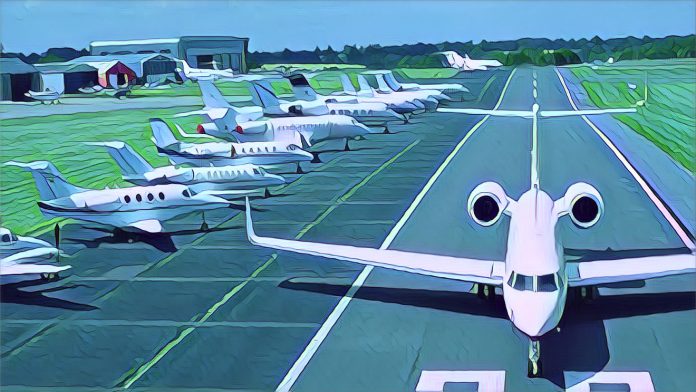Nigeria’s air travel sector has faced a staggering 40% market share loss within a year, largely due to the ongoing crisis involving foreign airlines’ inability to repatriate $800 million in ticket sale revenues. This financial standoff between the airlines and the Nigerian government has led to significant repercussions for the country’s aviation industry.
For the past two years, international carriers have been embroiled in a dispute with the Nigerian government over their detained funds. Despite the Central Bank of Nigeria recently releasing $60 million, it falls short of the 50% release demanded by the foreign airlines as a condition to continue their operations in Nigeria. The Association of Foreign Airlines and Representatives in Nigeria (AFARN) has warned that facing continued difficulties in repatriating their funds, they may follow in the footsteps of Emirates and Etihad, which suspended flights to Nigeria two years ago.
According to a report by The Sun, Yinka Folami, Vice President of the National Association of Nigeria Travel Agencies (NANTA), explained the impact of these challenges on the cost of international flights from Nigeria. As airlines block their lower inventories to Nigerian travelers, many now opt to book tickets from neighboring African countries, Europe, or the United Kingdom. This shift has eroded about 30 to 40 percent of Nigeria’s travel market share, as clients find cheaper flight options outside Nigeria.
Dr. Kingsley Nwokoma, President of AFARN, expressed frustration over the situation, noting that foreign airlines pay aviation agencies in dollars but are unable to repatriate their rightful earnings. The lack of commitment from the Nigerian government regarding further fund releases exacerbates the problem.
Aviation security expert Capt John Ojikutu (retd) warned of the dire economic consequences if foreign airlines suspend operations in Nigeria. He estimated that 80% of the country’s earnings in commercial aviation would vanish, resulting in the loss of thousands of jobs and worsening the unemployment crisis.
Olumide Ohunayo, another aviation expert, highlighted that local airlines are ill-equipped to fill the vacuum that would be created by the departure of foreign operators. He emphasized the importance of adhering to the Bilateral Air Services Agreement (BASA) and suggested that commercial agreements could be a mutually beneficial solution.
Amos Akpan, speaking on the issue, stressed the economic implications if foreign airlines leave Nigeria due to their inability to retrieve trapped funds. He recommended ongoing dialogue with foreign airlines and regular payments on outstanding amounts, even if small, until fully defrayed. He also urged the Nigerian government to strongly advocate for Nigerian airlines to operate these international routes, as some local airlines have shown the capacity to do so.
This crisis highlights the precarious balance between maintaining healthy international relations in aviation and ensuring the economic stability of Nigeria’s air travel market. The inability to resolve this issue could further tarnish Nigeria’s reputation as a reliable partner in international aviation, deterring foreign investments and jeopardizing future opportunities for the country’s aviation sector.
As Nigeria navigates this complex situation, the need for strategic solutions and cooperative efforts between the government and international carriers becomes increasingly critical. The resolution of this crisis will be pivotal in determining the future trajectory of Nigeria’s aviation industry and its role in the global air travel market.



